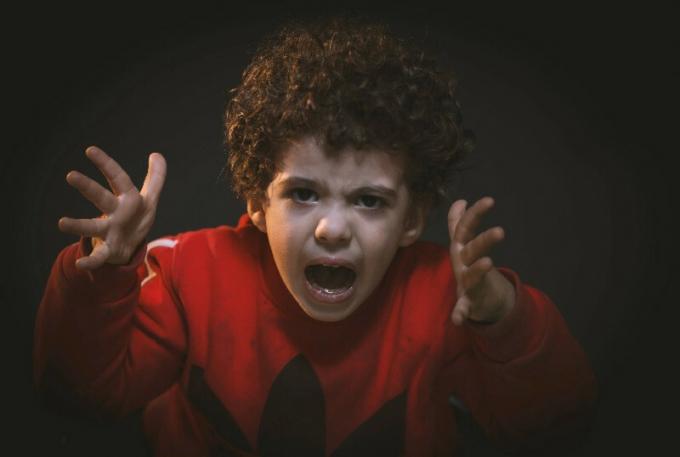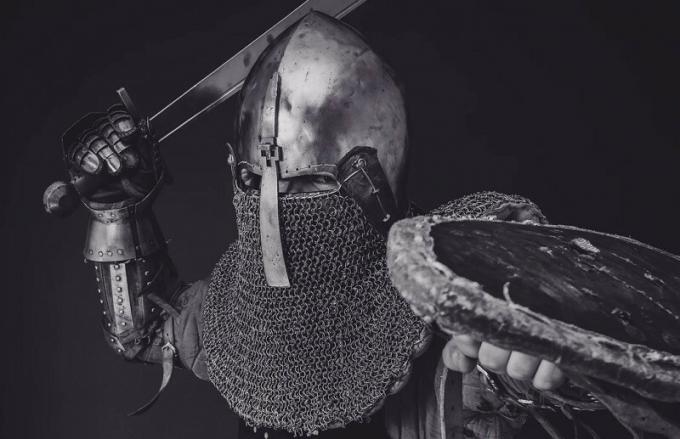20 metaphors for kids (explained)
Metaphors are very common figures of speech, both in written and oral language, so much so that we use them countless times every day without realizing it.
Saying and understanding metaphors is not something too complicated, so this literary technique is not only suitable for adult understanding but also for children.
As proof of this below we are going to discover 20 metaphors for children and their meaning, explained by referring to its real and imaginary elements.
- Related article: "10 psychological games for children: how to use them, and what they are for"
20 metaphors for kids ideal to learn, with explanation
Metaphors are figures of speech that we all use, both consciously and unconsciously. Essentially, these are linguistic resources in which a relationship of similarity is established between two terms or two concepts, and that both share some quality that allows us to establish such comparison. Thanks to this, these resources are widely used both in narrative literature and in poetry, since they allow to embellish language by modifying the usual meaning that words have.
Metaphors consist of three parts: the real element, the imaginary element, and the connection between the two.. The real element would refer to the true meaning of the metaphor; the imaginary element is what is compared with the real element and the connection between the two would be what both types of elements share.
For example, in the metaphor "has golden hair" we mean that someone has blond hair. Therefore, the real element of this metaphor is "being blond." In this case, the imaginary element, that is, what is compared to the real element. The connection between both elements is that gold and blonde hair have a similar color.
Metaphors allow children to be taught concepts that are difficult to understand, especially emotions such as loneliness or sadness that, although they undoubtedly understand them when they are the ones who feel them, sometimes it is difficult for them to see them in others. The reason for this has a lot to do with the way in which little ones usually learn, that requires a lot of patience and give examples, examples that the more creative and promoters of the imagination be better.
Then we are going to see various metaphors for children, explaining what they refer to and what is the connection between the imaginary and the real element. As expected, 20 are not all the metaphors that we can generate in the Spanish language. The creation of metaphors is an activity that has no limits and we can do as many as we want, being the Following are a few examples that, of course, will allow us to explain certain concepts to the little ones.
1. Feel like when the sky cries
When it rains, drops of water fall in a similar way to how our tears fall when we cry. This is a nice metaphor to say that we are sad and also usefulSince not all children find it easy to say clearly how they feel, but it is more comfortable for them to use this type of metaphor.
2. Grandpa is a well of wisdom
Grandparents are people who have lived many years and, therefore, have learned a lot. The well is that place where we draw water, therefore is a source of this resource, in the same way that older people are sources of knowledge and wisdom.

3. Your father and you are two drops of water
The drops of water are practically the same. Saying two people are like two drops of water, that is, they are very similar, both physically and psychologically, whether in expressions, gestures, skin color or hair type. The metaphor of the two drops of water can be used to explain to children why they look so much like their fathers, mothers and siblings.
4. Time is money
Gold is worth a lot, and so is time. This phrase helps them understand the importance of valuing time, of knowing how to use it both with useful activities and with what they like to do the most. Children must understand and learn to value every minute of their lives, since they will not be repeated.
5. The sky is covered in cottons
This metaphor is one of the easiest to understand, since the resemblance of white clouds and cotton is evident, especially if it is a day with a slightly clear sky. Clouds form whimsical shapes like cotton weave, stretching, becoming almost spherical, elongated ...
6. The pearls of her mouth
A simple and poetic way of saying that a person has a beautiful white smile. The teeth poke out of the mouth like the beautiful shiny pearls in a bivalve do, capturing our attention and leaving us briefly enraptured.
7. The girl became a butterfly
In this metaphor a girl is compared to a butterfly. The real meaning of the expression is that the girl grew up into a young woman, just as caterpillars mature into butterflies.
- You may be interested in: "Phrases of children and about childhood"
8. The meadow was a bright green blanket
The prairie is a field of green grass, which in the morning can have dew drops and be swayed by the gentle wind as if it were a Manila mantle.
9. Be in the prime of life
The meaning of this sentence is to meet in youth. The plants grow until they form a flower that later withers. You could say that the plant is a flower in the middle of life, as it happens in human youth. First we are children and adolescents, people who are too immature. Then we mature and reach adulthood, a time full of opportunities and options. We progressively become older, reaching old age, a period of withering.

10. His chest sounded like a drum
Here the real part is "chest" and the figurative part is "drum". The person was so upset that his heart was beating very strongly, sounding like when someone plays a drum very often, loud and intense.
11. Two emeralds sparkled in her eyes
Emeralds are green. To say that a person has two emeralds in their eyes is to say that those eyes had green irises.
12. Your voice is music to my ears
With this expression we are not saying that someone is singing a serenade to us, but that his voice is as pleasant as the most delicate and gentle melody.
13. That child is a beast
By the word beast we usually refer to wild, moody and bestial animals. To say that someone is a beast comes to say that the nature of that person is compared to that of wild animals, indicating that he has a bad character.

14. The night sun
The Sun is a star that is only daytime and that is considered as a single entity, therefore, speak of a night sun comes to refer to the Moon, its counterpart and also the celestial body that illuminates the sky night. As a curiosity, this metaphor is also an oxymoron, that is, a phrase that is complemented by something that is contradictory (when there is sun it is not night, the night is the absence of the Sun).
15. Lose a screw
Here the word "screw" is used in a figurative sense and comparing the human brain as if it were a machine, with various mechanisms that also have screws. When we say that someone loses a screw, we come to say that her behavior is out of what is normal for him or her, that is, as if the machine had short-circuited. Basically, it means that someone has gone crazy, that his brain begins to fail.
16. Be between a rock and a hard place
This phrase is one of the most common metaphors and sayings in popular language. It is used to imply that someone is in a situation that involves a dilemma, between two extremes of which it is difficult to know very well what to choose. Choose what you choose does not give you options, it leaves you trapped in one way or another, as one who literally finds a sword in front and a wall behind. Either there is no escape or the decision you are going to make will inevitably have negative consequences.

17. Have the spirits on the ground
Let's imagine that our spirits are like energy and that our body is a big pile. If we are happy, the spirits will be high, perhaps even through the roof. On the other hand, if the spirits are low it is that the few energies that we have will be found at the base of the pile, on the ground. Basically with this metaphor we say that someone is very sad and affected.
18. Steal a smile
The verb "steal" in its dictionary sense means to take something that is not ours, that does not belong to us. So how do you steal a smile? In this metaphor it is implied that a person has managed to make another smile, in an unexpected way, as is often the case with robberies. Thefts happen without giving permission, and in this case we say that we have stolen a smile from someone when we have made them smile without being asked.
19. Your friend is a big baby
In this expression the term "friend" can be replaced by any other word that refers to a person, is used in its literal sense while "baby" is the word that has the meaning imaginary. This phrase implies that someone, be it an older child, adolescent, or even adult, behaves in a way that is inappropriate for their age, acting too childish and immature.
20. Be a donkey
In this case the word "donkey" is used figuratively to indicate that someone, be it a child or an adult, is not understanding anything that is being said or is very ignorant, forgetful and clumsy. To tell someone that they are a donkey is to tell them that they are dumb, and can be used both offensively and mockingly.
